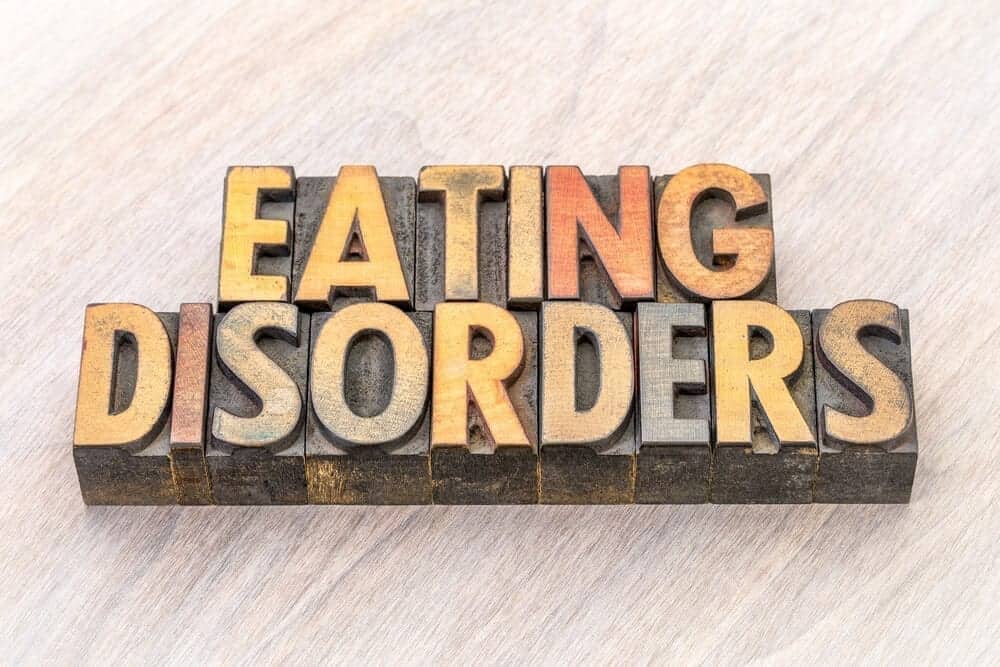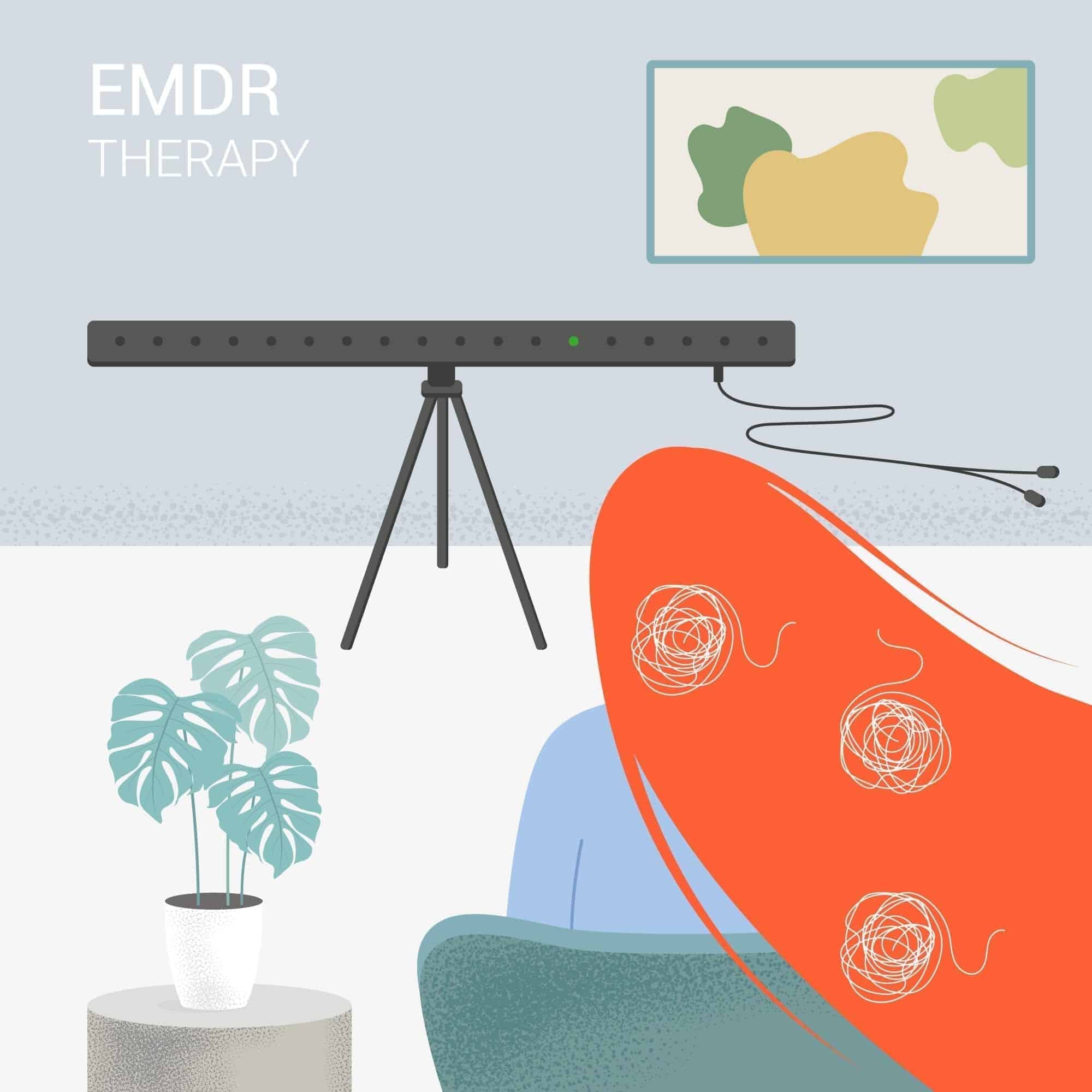
Those who have experienced trauma in their lives are much more likely to go on to develop an eating disorder when compared to those who have never had a similarly traumatic experience. That trauma may be either a single catastrophic event or it could involve many small yet distressing events. It can be hard to cope with trauma in a healthy way, and this is why so many sufferers go on to have an eating disorder – it’s a maladaptive coping mechanism that is all-too-common. However, EMDR therapy can prove to be a helpful treatment.
What Could Cause Trauma?
There are numerous potential causes of trauma. These include:
- Physical or sexual abuse
- Living in war conditions
- Family conflicts
- Moving home
- A loved one’s death
- Divorce
- A highly controlling family environment
- Neglect
- Illness or in another family member
- Having experienced a serious childhood illness
- Witnessing violence
- The murder or suicide of a loved one
- Being bullied
As you can see, there are many causes for trauma. While some may be more obviously traumatic than others, all can have the same kind of negative impact on mental health and all can be responsible for the development of an eating disorder.
Eating Disorders Are Unhealthy Coping Mechanisms
When a trauma occurs, the brain cannot properly process the event. Therefore, the trauma gets buried away in the sufferer’s subconscious ready to be triggered at some future time. Behaviors associated with eating disorders usually start as a way of avoiding the feelings and thoughts of that past traumatic event.
Disordered patterns of eating are often used to cope with stress, suppress the unwanted emotions and to help deal with everyday life. Those coping behaviors then become a habit which is difficult to break. Eventually, the behavior starts to be used for coping with every problem and so the eating disorder can take over.
How Can EMDR Therapy Help With Trauma Symptoms?
EMDR therapy is a trauma-focused treatment that helps to take away the pain associated with the trauma that has been experienced which has prevented the sufferer from moving forward with their life. EMDR is short for “eye movement desensitization and reprocessing” therapy. T is a psychotherapeutic technique which enables the individual to heal effectively from emotional distress that results from disturbing experiences.
EMDR therapy is a well-recognized type of therapy for trauma as it facilitates the individual’s ability to access and process traumatic life experiences and memories so that resolution and healing can be promoted. It works by helping the individual to process information which is emotionally disruptive in short spurts while also focusing simultaneously on external stimuli. It has been shown to be an effective way to heal the mind from a psychological trauma just as a medical treatment can help the body to heal and recover from a physical trauma.
EMDR therapy uses a three-layered protocol to help heal individuals with trauma:
- First, the dysfunctional events of the past are processed so new associative links can be formed with adaptive information.
- Secondly, the current circumstances which are evoking distress can be targeted, with external and internal triggers being desensitized.
- Thirdly, future scenarios can be incorporated so the individual can begin to acquire the essential skills they need to act positively in the future.
For someone who is suffering from an eating disorder perpetuated by their unresolved trauma, it’s possible to use EMDR therapy to remove imbalances of blocks in their mental processes which have been negatively impacted by the traumatic event. Once those mental blocks have been removed, healing is able to resume. EMDR therapy helps individuals to activate the natural process of healing from past traumas.
Once the underlying trauma is resolved, the individual experiences fewer compulsions to engage in their usual eating disorder behaviors that they use to disconnect themselves from the pain of their trauma. By transforming the suffering relating to the traumatic experience, it’s possible for the individual to reshape their own future and learn new and effective coping mechanisms so their eating disorder recovery can be maintained.
What Is The Benefit Of EMDR Therapy?
A primary benefit of EMDR therapy is that there is no need to retraumatize the individual by reliving all of the trauma’s details. Instead, EMDR sets up a state of learning which enables the experienced to be appropriately stored inside the brain. It’s then possible to remember the trauma without any of the emotional impact once associated with the event. It has long been a preferred treatment for veterans who returned from combat suffering from PTSD. When used in conjunction with other eating disorder therapies, EMDR therapy can help to ensure healthy coping mechanisms can be adopted fully for a complete recovery.
EMDR Therapy For Eating Disorders
Although EMDR therapy sounds strange, it’s actually a tried and tested technique that was first developed by Francine Shapior, an award-winning doctor. It is based on the idea that, when we undergo a traumatic experience, the body doesn’t have the opportunity to properly process those memories. Therefore, maladaptive coping behaviors develop including sleeping problems, feeling edgy or extremely alert, extreme detachment or re-experiencing the trauma repeatedly. EMDR therapy doesn’t require the individual to talk in any detail about their trauma. This is something which must be done during talking therapies and it can re-traumatize the individual as they go back through all those difficult events in their mind.
EMDR therapy takes down the emotional volume when it comes to the traumatic event. Instead, the individual is told to focus on a single image of the traumatic incident as well as the negative thoughts linked to the event. At the same time, auditory tones, lights, tapping or eye movements are used by the therapist. Afterwards, the patient still remembers their traumatic incident, but they’ll no longer relive the feelings, sounds and images of that event. This allows for a more effective everyday function in the individual’s life.
When it comes to eating disorder recovery, EMDR therapy is able to release the cause behind the eating disorder’s emergence in the first place. It makes it possible for the individual to reprocess their upsetting memories in such a way that they can begin to move forward with their recovery and their life.
Can Anyone With An Eating Disorder Have EMDR Therapy?
There are some conditions which need to be met if someone is to benefit from EMDR therapy for their eating disorder.
Firstly, there needs to be a trained EMDR therapist in place who can adhere to the best practice protocol. Secondly, the individual must be medically stabilized and their brain must be receiving sufficient nutrition to allow it to function properly so the process can be a success. The individual also needs a strong network of support surrounding them, whether they be support groups, family or friends. Finally, the individual needs to have the ability to access a safe, calm and peaceful place inside their mind when they are undergoing this process or whenever they are feeling overwhelmed. This tool helps them to tolerate distressing feelings and gives them a way of grounding themselves.
Not everyone with an eating disorder is a suitable candidate for EMDR therapy. However, many people are and it’s an avenue that is well worth exploring.
How Does EMDR Therapy Work?
Some people with eating disorders worry that EMDR therapy will be frightening, but in fact this isn’t the case at all. EMDR sessions aren’t scary. Initially, the therapist takes a full history of the individual and will tell them about how the process will work. Questions are asked about the current symptoms being experienced and what kind of outcome is desirable. Next, the therapist will prompt the individual to choose an anchor to associate with their safe place. Then, the individual begins to discover the irrational beliefs that they are harboring.
A lightboard, object or even the therapist’s fingers will be used to guide the individual’s eyes to the right and left several times. Should this be uncomfortable, it’s possible the therapist may use a pair of headphones to transmit alternating sounds to each ear.
Another possible method is to use tapping. Periodically, the therapist asks a question then the process will continue. The individual is asked to rate their feelings about a given situation from 1 to 10. They are asked if they notice any sensations in their body and how true they feel a statement to be on the scale of 1 – 7. Gradually, the numbers change on the scales.
How Does An EMDR Therapy Session End?
Usually, an EMDR therapy session ends with relaxation exercises. In between sessions, it’s important to practice relaxation exercises and to log insights, thoughts, memories or dreams by taking mental snapshots that will then be discussed during the following therapy session. Often, individuals realize that they’re responding in a different way to current triggers.
Treating Eating Disorders At Every Level
It’s important to treat an eating disorder at all levels. Treatment shouldn’t only be about stopping the behaviors associated with the eating disorder, it should also be about addressing the trauma that underlies the condition. Should that trauma be left untreated, a full recovery is very unlikely. Relapse also becomes much more probable in the long-term, or the individual may end up turning to other maladaptive coping strategies such as using drugs or alcohol, self harm, addictive shopping, extreme exercise or other behaviors that pose a high risk to the individual’s well-being.
When properly used, EMDR therapy is able to unlock the cause behind the eating disorder and then reprocess that trauma in such a way that the individual’s life will not be unduly hindered or negatively impacted. Reducing symptoms will always be helpful, but the true goal is to ensure a full lifetime recovery from eating disorders, and this becomes possible with EMDR therapy.
What Should I Know About EMDR Therapy?

Although EMDR therapy is generally safe and has few side effects when compared to many prescription medications, there are a few things you should be aware of before trying this treatment for your eating disorder. This type of therapy can cause a heightened awareness of thinking that won’t come to an end straight away as soon as the session does. As a result, you can experience dizziness or light-headedness as well as realistic, vivid dreams. It will probably take a number of sessions of EMDR therapy to experience the full benefits, so you won’t enter a full recovery overnight.
For some people, the commencement of EMDR therapy may also be exceptionally triggering to anyone who is starting to deal with their traumatic events, especially due to the heightened focus. Although this therapy will usually be effective in the long-term, it could prove to be emotionally stressful as you move through your treatment course. You should discuss the possibilities of this with your therapist at your first treatment appointment so that you’ll be aware of how to cope if and when you experience such symptoms.
Getting Professional Help
If you’re suffering from an eating disorder due to trauma, you need to benefit from specialized help and treatment which can facilitate your recovery and long-term healing. Luckily, medical professionals are out there wo can give you the care that you need to alleviate the negative impact of those traumatic experiences and to address the eating disorder that you have developed due to them.
When you choose a therapist who integrates innovative therapies for eating disorders such as EMDR therapy, it’s possible to start making progress towards a full and lasting recovery. Although traumatic incidents are difficult to overcome and their impacts can be long-lasting and far-ranging, it’s always possible to get better and to enjoy a full, positive and happy life when you get the right kind of help and support.
Eating disorders are difficult to live with and challenging to recover from, but when you admit that you need to get help and seek out the best medical advice, you can soon be on the road to recovery and can return to a healthier lifestyle. Contact The Meadowglade for more information.
